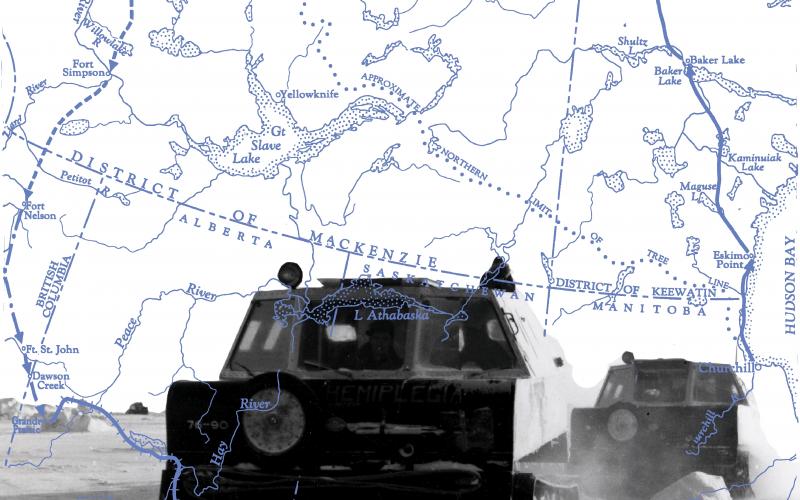In an increasingly complex and interconnected world, evidence-based public policy must be supported by Canada’s academic community. With this in mind, the Brian Mulroney Institute of Government is committed to producing and disseminating policy-relevant research analysis. Our work, based on rigorous academic standards and guided by an evolving thematic framework, is designed to engage with many of today’s most pressing public policy questions to inform and enrich the continuing debate.
Our research agenda is informed by the expertise of our Research Fellows and Chairs, and is, as such, continuously expanding.
NEW WORK BY CHAIRS & FELLOWS
CANADA-US RELATIONS
Canada shares with the United States the world’s longest undefended border, a system of integrated continental defense, and cross-border trade amounting to nearly $2 billion per day. It is the most important foreign policy relationship that Canada manages and one of the most complex. Within this theme, researchers examine questions of trade, economics, defense, immigration, and political relations. Understanding this relationship requires knowledge of its underlying foundations, its development and evolution, and current dynamics. By developing international connections, supporting new research, and facilitating an interdisciplinary dialogue between Canadian and American academics, the Institute contributes to informed policy making, strengthened bilateral ties, and a more robust understanding of the continuing benefits of a strong North American partnership.
ARCTIC AND MARITIME SECURITY
The Arctic is a region in flux. Climate change, resource development, shipping, and security concerns have combined in recent years to invest the North with a new and lasting significance in Canadian policy and defence consideration. To adapt and lead in this changing Arctic requires an understanding of our Northern history, our stewardship responsibilities, and of the complex dynamics driving circumpolar change. These overarching themes contain a number of subfields, such as Indigenous governance, community resilience, shipping, maritime security and safety, defence, environmental protection, natural resources management, and sovereignty. To this end, the Institute supports new and innovative research in this area through policy-relevant publication, teaching, public engagement, and the development of new partnerships across government, academia, and industry.
FEDERAL POLITICS
The study of Canada, its political institutions, and how these bodies interact with provincial, territorial, and municipal governments gives rise to a host of questions about the nature and function of the Canadian government. Researchers engaged in this field examine, among other things, how the federal government formulates and administers policies across a range of policy domains, its motivations for doing so, and the reactions of key stakeholders to federal initiatives. Areas of intense conflict and cooperation between different branches and levels of government in Canada figure prominently in these and other discussions.
FOREIGN POLICY
With the United States no longer ascendant and European harmony no longer assured, the rules-based international order is in flux. Rising powers, such as China and Russia, pose new challenges. Institutions appear weakened and their commitments less binding. Democratization and multilateral trade liberalization have stalled. The United States, once the undisputed global hegemon, has recently declined to play a stabilizing role. The researchers in this area explore matters of global security, foreign policy, and trade.
REGIONALISM
Territories of common geographic, economic, or social features often cut across national or provincial boundaries, but these regions are important factors in determining political interests and values. The Atlantic/Maritimes regions are a common focal point here. Regions are also important across North America and throughout the world. Researchers often focus on economic and social development by region, as well as the impact of region on political culture and the need for region-specific policy, including governance structures and policy coordination that deals more effectively with regional issues.
GOVERNANCE IN THEORY AND PRACTICE
Recent decades have seen increasing challenges to the vision of the hierarchical state as a dominant power centre. The state now co-exists with markets and civil societies, opening alternative pathways for decision-making and shifting shapes of power. With this comes new understandings of policymaking processes, networked politics and state forms intersecting at multiple levels. Governance is now recognized as an integral part of modern politics operating at all scales and in a variety of institutions ranging from corporations to non-profit associations. Drawing on the conceptual toolbox of governance studies, the work of the Institute generates important insights into some less-recognized aspects of contemporary politics.
POLITICAL ECONOMY
If the COVID-19 pandemic has taught us anything, it is how inextricably linked economic performance is to political decisions made at the highest levels of government. In the field of political economy scholars study how politics both drives the economy, as well as the extent to which economic decisions shape both the actions of leaders and the political institutions they are entrusted to oversee. The vital link between economics and politics plays out in every facet of society, from how governments provide for the well-being of its citizens to how leaders decide to support global development. Indeed, there is not a single decision that is made in the political arena that is not in some way shaped by economic and financial forces. Our team of researchers bring their unique expertise to bear on critical decisions that reveal how these two key driving forces – economics and politics – can help reinforce or, at times, undermine the strength and vitality of the body politic.
CANADIAN AND COMPARATIVE PUBLIC POLICY
The Institute supports new and innovative research in Canadian and Comparative Public Policy. No political issue can be analyzed satisfactorily without examining the major policy challenges of our time in areas such as governance, the environment, education, trade, race relations, employment, and health. Looking at both the national and international context, one can understand how policy ideas, institutions, and practices shape policies and their outcomes. One could also look at policy development over time, comparing different contexts and periods.

















